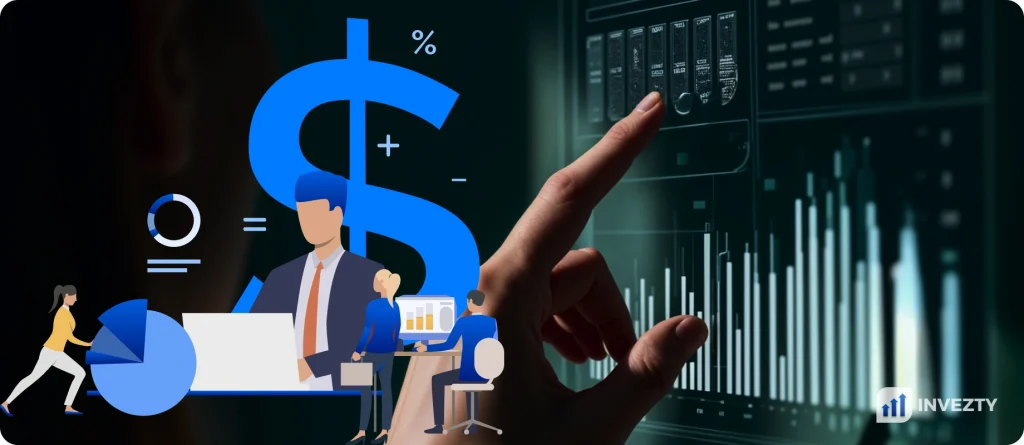Thadeus Geodfrey is a leading voice in the financial industry. You’ll appreciate the expert ease with which he does this. He deciphers the intricate link between emotions and behavior in trading and investment. With extensive experience as a senior trading writer, Thadeus imparts his knowledge and confidence to guide your trading boat. He’ll make you conquer your fears, break barriers, and capitalize on every potential opportunity. Follow his pieces and develop your knack for trading.
We may receive compensation from our partners for placement of their products or services, which helps to maintain our site. We may also receive compensation if you click on certain links posted on our site. While compensation arrangements may affect the order, position or placement of product information, it doesn’t influence our assessment of those products.
Free commissions have changed the trading landscape for the better. Before this phenomenon gained traction, traders had to pay commissions that often reduced potential returns. In extreme cases, these commissions made it harder for retail investors to buy and sell their favorite securities.
The advent of zero-commission trading turned the trading sector into a utopia, especially for retail investors with limited capital. It has also benefited large-volume traders who no longer have to contend with unimaginable costs.
What is Zero-Commission Trading?

As the name suggests, the trader doesn’t pay any commission in zero-commission trading while buying and selling stocks, ETFs, and other assets. This is a popular boon that many online brokers use to attract and retain retail investors who want to cut down costs.
Note that zero-commission trading doesn’t mean zero fees. You may still incur costs associated with spreads, transaction fees, inactivity charges, etc. Please review each zero-commission service provider’s fee structure before signing up.
How Do Zero-Commission Platforms Make Money?

Since zero-commission brokers can’t get their revenue from commissions, they’ve devised ingenious ways of earning money. Here are some of them:
- Cash sweep programs
Some zero-commission brokers use their clients’ uninvested cash to generate revenue. They use cash sweep programs, which is a feature that transfers any uninvested cash from traders’ accounts to low-risk, revenue-generating accounts like money-market funds. These actions are often fully automated, so they cause no inconvenience to traders.
- Inactivity fees
Many zero-commission trading platforms charge monthly inactivity fees that traders with dormant accounts have to pay. These fees are primarily meant to assist brokers to cover costs associated with account maintenance and other aspects. Remember, dormant accounts, too, have to undergo regular maintenance.
- Transaction fees
Most brokers offer free transactions. However, some charge small fees for deposits and withdrawals and use the money they collect to replace revenue that would otherwise come from commissions. Others require traders to charge forex conversion fees when converting one currency to another.
- Premium charges
Premium features are common in zero-commission trading platforms. Many offer premium research and reporting tools that advanced traders can use at a small fee. Moreover, some offer sophisticated proprietary trading software that require users to cover subscription charges.
- Securities lending
Zero-commission brokers often lend financial securities like bonds and stocks to interested borrowers from client accounts. In return, borrowers pay a small fee to these service providers. Please note that most brokers ask for their clients’ permission before lending out their assets.
- Payment for order flow
Many market makers pay brokers who send trades their way. These payments help trading companies stay afloat while charging zero commissions. The more the broker sends client orders to market markers, the higher their commissions are.
The Impact on Retail Investors

Commission-free trading has made it easier for retail investors with limited capital to interact with the financial markets. Before this concept became popular, traders and investors needed significant capital to trade and cover the associated costs.
Retail investors can also engage in frequent trades without incurring ungodly costs, courtesy of no-commission brokers. If you’ve ever traded with platforms that charge commissions, you know that increased trading frequency goes hand in hand with accumulating fees, high costs, and diminished returns.
However, we advise all retail investors to be cautious. Commission-free trading can encourage excessive trading, which often leads to a variety of issues, from increased risk exposure and reckless timing to physical, emotional, and psychological burnout.
Future of Zero-Commission Trading
As brokers compete for relevance, more companies will adopt zero-commission trading. This will help them attract more customers and maintain a competitive edge. But the benefits won’t go to brokers exclusively. Retail traders and investors, too, will reap from the boons of commission-free trading, including lower costs, easier market accessibility, and enhanced returns.
Conclusion
If you’re an avid trader, join a commission-free trading platform today and reap the associated boons, from lower costs to high potential returns. But when choosing the best platform to trade with, we advise you to focus on more than the zero-commission feature. You also vet each service provider’s regulatory status, online reputation, and minimum deposit requirements. Don’t forget fees since, despite charging zero commission, most service providers have other trading and non-trading fees and charges.
